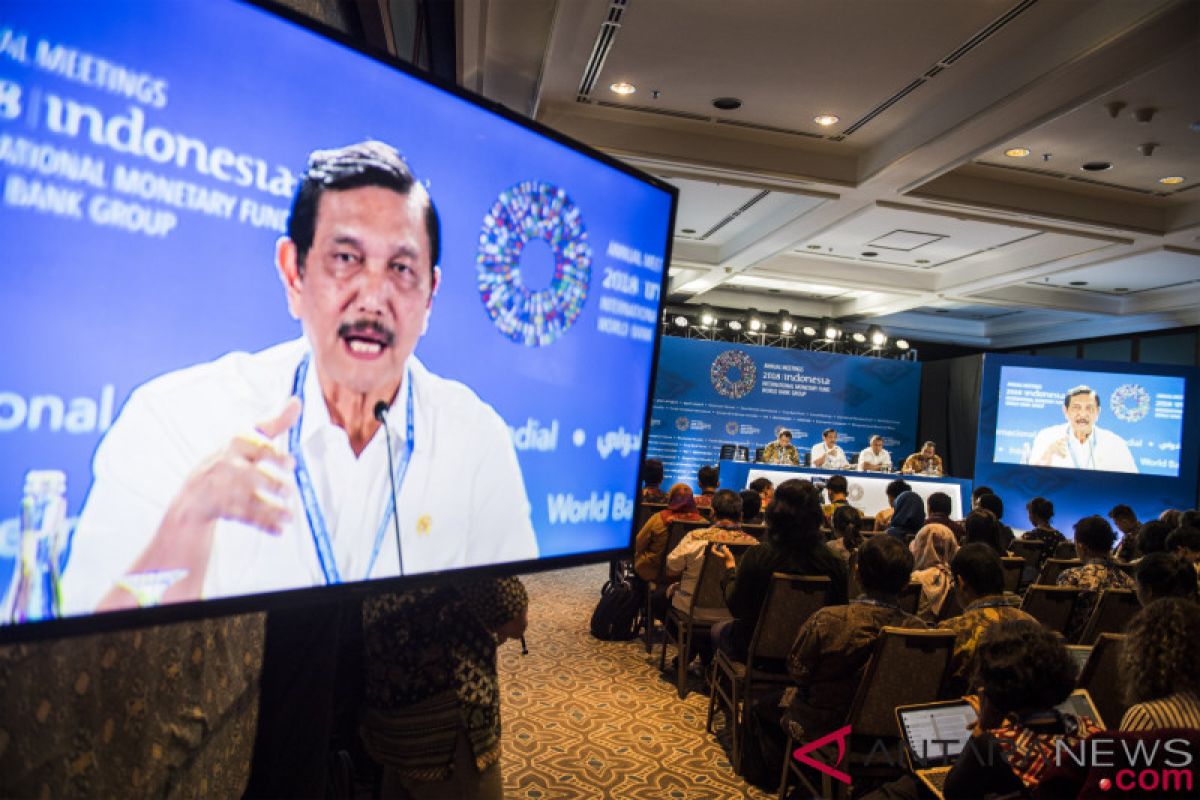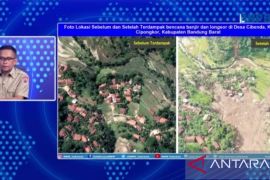"We are not only seeking redressing over any problem in oil palm plantations, and to recover mangrove forests which have been almost 50 percent lost, we also are seeking to straighten out things in seaweed ecosystem and forest preservation," Coordinating Minister for Maritime Affairs Luhut Binsar Pandjaitan told international environment activists at the Our Ocean Conference here on Tuesday.
On Monday, Luhut called on global action to cope with climate change.
Problem confronting the world are endless, he said, citing that climate change, natural disasters, pollution, and sea waste are common threats that need immediate solution.
"What is needed now is global actions as we are expected to be more sensitive, fast and creative in dealing with the situation we are now in," he said.
On Tuesday, Erik Solheim, the Executive Director of the Environmental Program of the United Nations (UNEP) expressed appreciation for Indonesia having done much to recover the environments such as mangrove forests, oil palm plantations, natural forests , etc.
"Congratulation for Indonesia which has pioneered global program for oil palm plantations and for leadership played by Indonesia in coping with various environmental issues. We will always be ready to help the government of Indonesia in maintaining environmental balance," Solheim said at that meeting.
On the same occasion, President of World Wildlife Fund (WWF) International Pavan Sukhdev thanked Indonesia for support over oil palm plantation issue.
Sukhdev also raised the issue of declining orangutan population in Tapanuli (Pongo tapanuliensis) in Batang Toru, North Sumatra Utara, now not more than 800.
"We are concerned with their fate as a hydroelectric plant is being built in that location," he said.
He said the orangutan could be driven from their habitat and enter nearby residential area.
"We recommend that the orangutan be relocated," he said, adding Indonesia could follow the model adopted by Rwanda which saved the population of its gorillas by including them in a tourist program.
Research has revealed that the orangutans in the Batang Toru Ecosystem are the last surviving remnants of an ancestral wild orangutan population that once stretched from Lake Toba in the north all the way to the south of Sumatra.
The research suggests that all orangutans further to the north in Sumatra and all those in neighboring Borneo may well be descended from this now largely extinct ancestral population, of which only the Batang Toru orangutans remain.
Due to their genetic uniqueness, the Batang Toru orangutan population deserves the highest conservation effort.
Reporting by Afut Syafril Nursyirwan
Editing by A Saragih
Reporter: Antara
Editor: Fardah Assegaf
Copyright © ANTARA 2018












